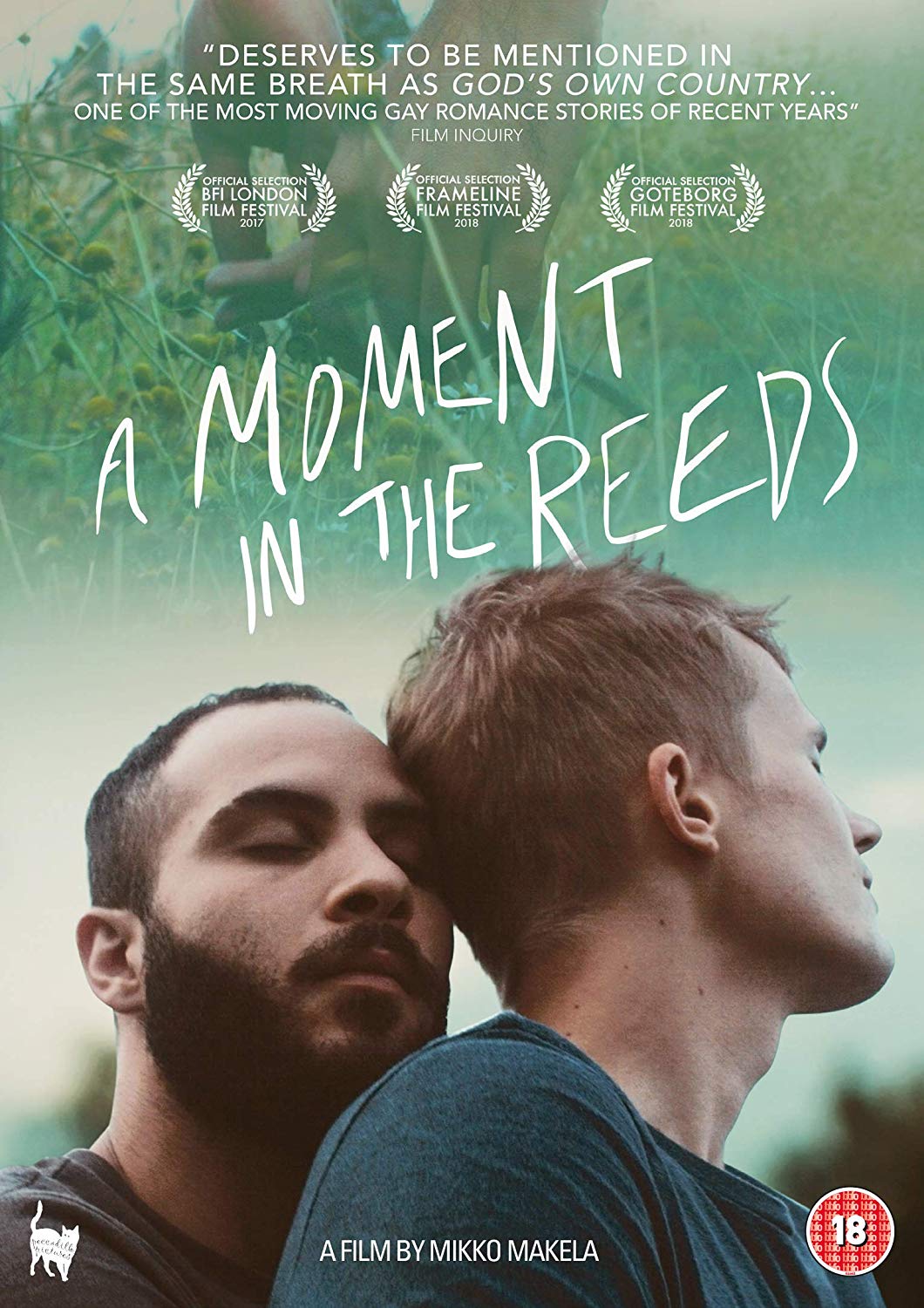Mikko Makela’s debut feature is as sheerly concentrated a piece of filmmaking as you can imagine. The Finnish director – previously better known as an actor – manages his principle cast of three immaculately as they play out a powerful drama that takes in family relationships, sexuality and the immigrant experience, and the sense of belonging (or not) that the last two issues generate.
There’s another strong presence here, too, namely the lakeside location in which, as its title hints, A Moment in the Reeds is set; it has the kind of isolated, back-to-nature beauty that is so appealing on long summer days (and would be unimaginable in winter). The film's loose story revolves around the renovation of a summerhouse that Juoko (Mikka Melender) is preparing to sell; his son Leevi (Janne Puustinen) has come home from his graduate studies in Paris to help, though his efforts are distracted and half-hearted. Leevi's slight blond beauty somehow accentuates his callowness and a sense that he has lost his connection with the place, while his conflicted (if largely unspoken) interaction with his father revolves around his homosexuality and his dead mother, whose relationship with Juoko had clearly been strained.
 The fact that Leevi is gay is clearly no secret, but it remains a subject best avoided: indeed, what connection can there really be between this son, who is writing a thesis on “gender performativity”, and his gruff father who has probably never travelled far from the place of his birth and retains the prejudices of an older world? Sensing that his son may not prove much of a help with the renovation, Juoko has hired a handyman from an agency, and there’s considerable, if uneasy comedy when Tareq (Boodi Kabbani) turns up. A refugee from Syria who has claimed asylum, he is taking odd jobs until his command of the language allows him to continue in his profession as an architect (such skills only help with the task in hand).
The fact that Leevi is gay is clearly no secret, but it remains a subject best avoided: indeed, what connection can there really be between this son, who is writing a thesis on “gender performativity”, and his gruff father who has probably never travelled far from the place of his birth and retains the prejudices of an older world? Sensing that his son may not prove much of a help with the renovation, Juoko has hired a handyman from an agency, and there’s considerable, if uneasy comedy when Tareq (Boodi Kabbani) turns up. A refugee from Syria who has claimed asylum, he is taking odd jobs until his command of the language allows him to continue in his profession as an architect (such skills only help with the task in hand).
That lack of linguistic connection means that Leevi has to act as translator, while he clear also enjoys his father’s discomfort at the fact that so obvious an outsider has turned up. It’s not that Juoko is hostile – in fact, his efforts to communicate in broken English seem friendly enough – rather that the unfamiliar disconcerts him; Leevi, meanwhile, is casual about the third man’s presence, not least because the latter is clearly more concerned with his work. It’s only when the older man is called away urgently and the two are left alone, that an unhurried closeness develops, as the Finn recalls earlier times he had spent in the place; later, their work finished for the day, the two unwind in the sauna.
Then, as they relax over beers in the gloaming, a sense of deeper connection arises, not least over anomalous shared details (both, in their very different ways, are effectively evading military service). Then, over a locking of glances, the acknowledgement of mutual attraction reveals itself, and a new closeness, one of wordless contact, sets in: as they gradually open up to one another, the two actors play their physical contact with real intimacy. Although the father reappears periodically, they are rather left to their own devices, and Makela captures beautifully their easy connection in some moody slow motion shots over landscapes.
We suspect that Makela’s original script was spare, its bones fleshed out through improvisation
It’s a film in which the principle of “less is more”, dictated at least in part, one assumes, by budgetary considerations, works beautifully. There’s barely any music – some does appear, but only well after the hour mark – though the soundtrack is rich in its sense of nature, bird song especially. Iikka Salminen’s often hand-held cinematography has a special eyes for faces, as well as compounding the sense of surrounding silence: his camera catches the nuances of emotion beautifully. A closing credit notes “additional dialogue by the cast”, and we suspect that Makela’s original script was spare, its bones fleshed out by its actors through improvisation over considerable and rewarding rehearsal.
A Moment in the Reeds has earned comparison with British director Francis Lee’s God’s Own Country, not least for its study of a gay relationship developing in rural isolation between outsider protagonists from very different worlds. Though both films excel in the closeness of their initially unlikely romances, Makela’s is notably different, not least in its giving voice to the refugee immigrant experience, as Kabbani’s character reveals something of what he went through in his crossing of Europe to reach this new country that he is now determined to make his home. (Kabanni, an openly gay Syrian actor, is himself an immigrant to Finland.)
Most of all, the Finnish film has a greater sadness, with its sense that, even when two outsiders come together, the chances of achieving happiness remain so fragile. Makela has delivered a truly sensitive piece of filmmaking – with his style already finely formed, it will be fascinating to see what he turns to next.
Overleaf: watch the trailer for A Moment in the Reeds

 The fact that Leevi is
The fact that Leevi is